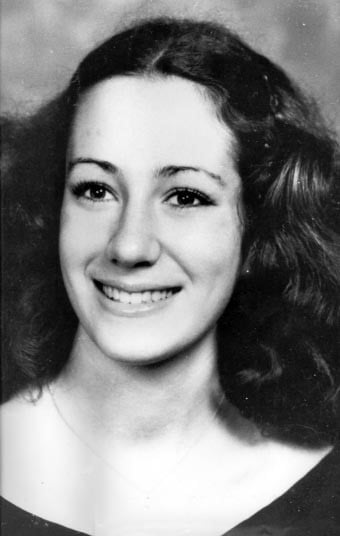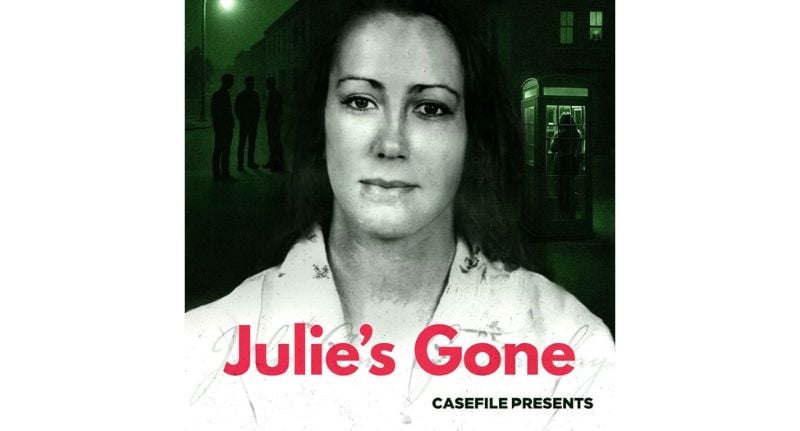Casefile Presents is expanding its true crime catalogue with Julie’s Gone, a seven-part podcast that dives into the mysterious disappearance of Julie Ann Garciacelay from North Melbourne in 1975.
Hosted by journalist Helen Thomas, the series combines fresh interviews, unseen testimonies, and extensive research to shed new light on a case that has remained unsolved for nearly five decades.
The case
Julie disappeared on 1 July 1975 after three men were seen visiting her apartment that evening.
Despite multiple police investigations over the years, no charges have been laid and her whereabouts remain unknown.
Thomas spent two and a half years examining original records, reviewing the Victorian Coroner’s file, and speaking with Julie’s 93-year-old mother, who still hopes to bring her daughter home.
The podcast also features three witnesses previously unheard in public, including two nuns who lived on Julie’s street.

Journalist Helen Thomas
Investigative approach with an empathetic lens
Thomas first partnered with Casefile Presents after developing a strong interest in the Easey Street murders case, which she covered in a prior podcast that has since attracted over 800,000 downloads.
“With my first project, Casefile came to me and said they’d be interested because they knew I wanted to do a podcast about Easey Street after the book had come out,” Thomas told Mediaweek in this trade publication exclusive.
“As I was finishing that, I suddenly sort of started really focusing in on Julie’s case, and I suggested that to them.”
Thomas emphasises the ongoing appeal of true crime podcasts lies in the deep human need to understand tragedies that feel incomprehensible.
“That’s a really important question and a significant question, and I sometimes, you know, I think like all of us, I struggle to answer it except to say people, I think, are genuinely concerned about things like this happening – people disappearing, people being murdered. These sorts of things shouldn’t happen, and yet they do. And I think we all struggle to understand why.”
She adds that “it’s the not knowing that really compels us” to engage with such stories through podcasts and other media.

Hope for new witnesses to come forward
More than a narrative, Julie’s Gone aims to encourage those with knowledge to speak up, no matter how small or seemingly irrelevant the information.
“Look, I think one of the most important things about these kinds of podcasts, and I certainly hope this is the case with, you know, Julie’s Gone, is that such an amount of time has gone by.
“You sort of hope if not for the armchair detectives to work things out, but for somebody who knows something the podcast might propel them to come forward because it’s five decades. It’s literally five decades ago this month in July,” Thomas said.
She recalled an event last year where Sergeant Tony Combridge from Missing Persons highlighted the burden carried by those holding secrets.
“He actually said that those with knowledge of what happened to Julie had lived with a secret for almost five decades. Well, now it is five decades. And, quote, now is the time to do the right thing and come forward. After so long, friendships falter and allegiances change.
“There may be people out there who are now in a position to come forward and speak to police to provide answers for Julie’s loved ones. Now, I think that sort of, that really encapsulates it, doesn’t it?”
Central to the story is Julie’s mother, whose decades-long hope for answers remains strong despite the pain.
Thomas explains: “One of the most central parts of it is Julie’s mum, who’s still alive. She’s 93. All she really wants to do is be able to bring her daughter home to be buried, you know, before she dies. She’s not in good health, but she really still is hopeful that can happen. And yet, you know, it’s been so hard for her.”
Thomas noted the challenges faced by Julie’s mother, who lived in America and lacked a local community to advocate for her daughter.

Julie Ann Garciacelay
“She came to Australia twice because part of the problem with this disappearance is the fact that there was no real family or sort of community of friends and neighbours to keep pressing the police… to keep pressing her case, I guess, in a way to say, well, where is she? What are you doing? What can we do?”
The series launches as Australians continue to consume true crime content at unprecedented levels.
The latest data from the Australian Podcast Ranker (something Casefile no longer participates in since teaming up with Acast) shows that true crime podcasts consistently rank among the most popular genres nationally, reflecting a broader cultural appetite for in-depth storytelling about real-life mysteries and injustices.
Thomas attributes this interest to a collective desire to grapple with difficult questions and the unknown. “We want to know why, you know, and I don’t think we’re good at coping with not knowing things.”
Julie’s Gone is a significant addition to the Casefile Presents portfolio, which includes other notable true crime podcasts like The Bakersfield Three and Troubled Waters.
The full series launches today and is available via Acast.
